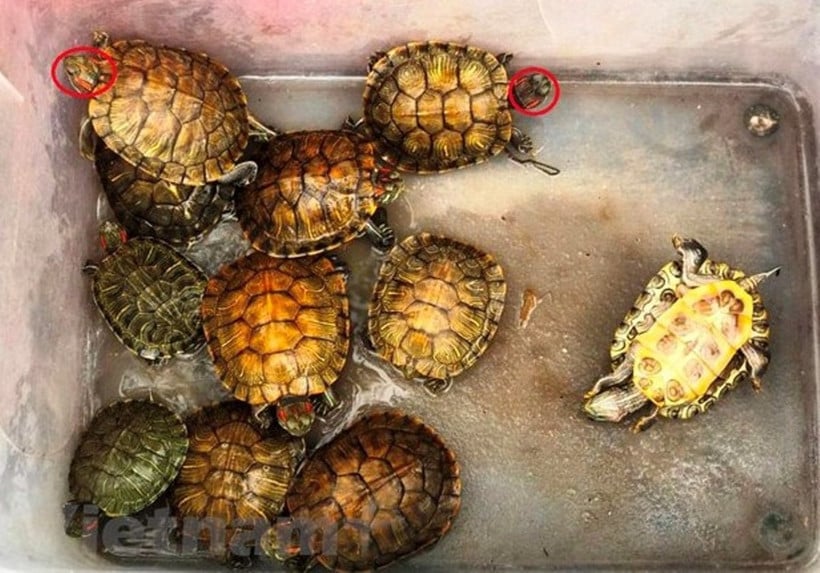 |
| Red-eared slider turtles are identified as invasive alien species. (Photo: HV/Vietnam+) |
Invasive alien species not only affect the ecological balance, but also negatively impact community life and the economy . Therefore, proactive early detection, rapid response, effective zoning and control, to eradicate alien species is an extremely urgent task.
Given the current level of harm caused by alien species, especially in the context of merging provinces and cities, relevant parties need to quickly develop feasible and effective solutions, because every delay comes at a price.
The above message was just given at the workshop "Strengthening the management of invasive alien species in Vietnam" organized by the Ministry of Agriculture and Environment in coordination with UNDP Vietnam, on the morning of July 31, in Hanoi.
A major threat to biodiversity
Speaking at the workshop, Mr. Nguyen Quoc Tri - Deputy Minister of Agriculture and Environment, emphasized that the workshop is an important and urgent event, aiming to promote the prevention and control of invasive alien species. This is one of the environmental issues that increasingly poses threats to the sustainability of the ecosystem and biodiversity of the country.
According to Mr. Tri, when introduced into a new environment, alien species have the ability to develop strongly and overwhelm native species, thereby causing serious changes in biological structure, depleting natural resources and even losing biodiversity values.
In fact, invasive alien species have been identified as one of the five main drivers of global biodiversity loss, according to the United Nations Science-Policy Platform on Biodiversity and Ecosystem Services (IPBES) and the Convention on Biological Diversity (CBD). Invasive alien species not only affect ecological balance, but also negatively impact community life and the economy.
Sharing the same view, Ms. Ramla Khalidi, Resident Representative of UNDP Vietnam, said that globally, invasive alien species are one of the top five causes of biodiversity loss. More than one million species are at risk of extinction.
“Unlike other causes, including land and sea use change, overfishing, pollution and climate change, the problem of invasive alien species has received far less attention. As a result, the threat is growing, and climate change will only make the situation worse,” said Ramla Khalidi.
Citing the 2023 report of the Intergovernmental Science-Policy Platform on Biodiversity and Ecosystem Services (IPBES), Ms. Ramla Khalidi said that more than 3,500 alien species have been recorded as having harmful impacts, with the global economic cost estimated at up to 420 billion USD per year.
Notably, invasive alien species are spreading rapidly due to trade, tourism, and other human activities. Since 1970, the cost of these damages has quadrupled every decade. And Vietnam is no exception.
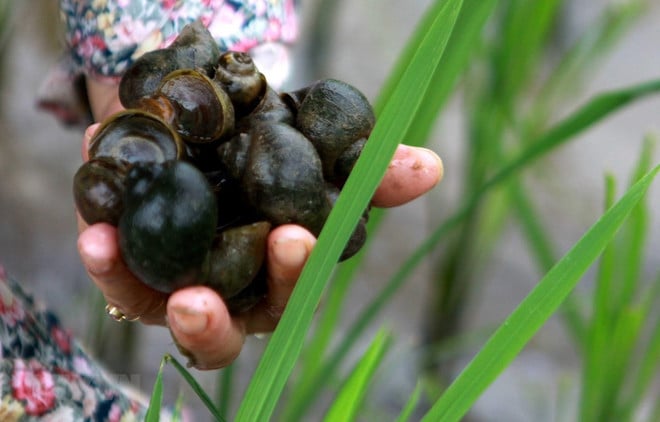 |
| Eradicating invasive alien species. (Illustration photo: The Duyet/VNA) |
"Invasive alien species in Vietnam have damaged crops, clogged rivers and disrupted native ecosystems. For example, by 1997, golden apple snails had infested more than 132,000 hectares of rice fields and water bodies in 57 provinces and cities. Their widespread impact has threatened livelihoods, affected food security and human health," said Ms. Ramla Khalidi.
Increased cooperation for early detection and rapid response
Faced with the above worrying reality, Deputy Minister of Agriculture and Environment Nguyen Quoc Tri said that controlling and preventing the invasion of invasive alien species is a challenge not only for Vietnam but also for the world. Therefore, there needs to be close coordination between agencies, organizations and the community.
Through the workshop, Mr. Tri also expressed his hope that experts would share valuable experiences in detecting, controlling, and eliminating invasive alien species; as well as discuss advanced methods and techniques to protect the environment and prevent the intrusion of these species into Vietnam's ecosystem.
"Through the valuable knowledge and experience of domestic and international experts and scientists, I believe that together we will be able to develop feasible solutions to prevent, control and eliminate invasive alien species," Mr. Tri emphasized.
Ms. Ramla Khalidi, UNDP Resident Representative in Vietnam, also emphasized that today's workshop is an important event, marking a milestone in the cooperation between the Ministry of Agriculture and Environment and UNDP within the framework of the "Support for Early Action" Project of the Global Environment Facility (GEF); at the same time, it reflects the common determination of the parties in addressing one of the most serious, but least-noticed, threats to biodiversity and sustainable development.
“That is also why Target 6 of the Kunming–Montreal Global Biodiversity Framework sets a target of reducing the spread of invasive alien species by 50% by 2030. This is a bold and necessary target, but it can only be achieved through coordinated, science-based action with the full participation of stakeholders,” said Ramla Khalidi.
In the current context, Ramla Khalidi said prevention is the best and most cost-effective strategy. However, early detection, rapid response, containment and long-term control are all important. Every delay comes at a cost.
Therefore, with the recent merger of ministries, departments and localities, Ms. Ramla Khalidi said that this is a driving force, opening up timely opportunities to strengthen cooperation, clarify roles and build a unified approach in invasive alien species management.
However, Ms. Ramla Khalidi also noted that policies and institutions alone are not enough. In addition, awareness and human will are needed through raising community awareness, building local capacity, mobilizing private sector participation, and empowering communities.
“These are the foundations of success. Full participation of all parties will enhance the legitimacy of actions. Inclusiveness will increase impact,” said Ramla Khalidi.
As for UNDP, Ms. Ramla Khalidi said that the organization will continue to support Vietnam in reviewing and updating policies in line with global biodiversity goals. "This work is part of our broader mission to support sustainable, inclusive and nature-based development," Ms. Ramla Khalidi emphasized.
At the workshop, domestic and international experts and scientists, representatives from relevant units of the Ministry of Agriculture and Environment, UNDP, and the Vietnam Academy of Science and Technology, also recommended the need to strengthen closer and more responsible cooperation between sectors, localities and countries, so that the work of preventing and strictly controlling invasive alien species is truly feasible, bringing benefits to both nature and humans./.
Source: https://huengaynay.vn/kinh-te/diet-tru-cac-loai-ngoai-lai-xam-hai-moi-su-cham-tre-deu-phai-tra-gia-156265.html


![[Photo] Chu Noodles - the essence of rice and sunshine](https://vphoto.vietnam.vn/thumb/1200x675/vietnam/resource/IMAGE/2025/11/11/1762846220477_ndo_tl_7-jpg.webp)
![[Photo] Prime Minister Pham Minh Chinh receives Lao Minister of Labor and Welfare Phosay Sayasone](https://vphoto.vietnam.vn/thumb/1200x675/vietnam/resource/IMAGE/2025/11/11/1762872028311_dsc-2246-jpg.webp)






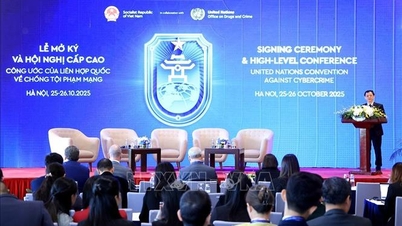


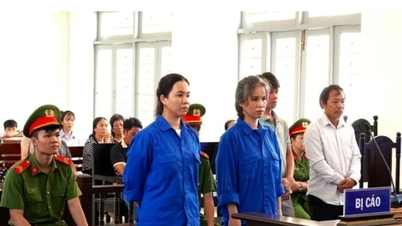











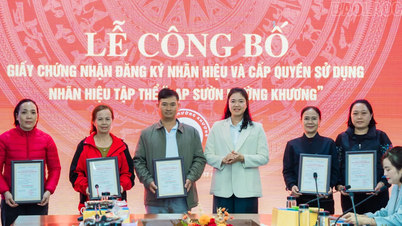











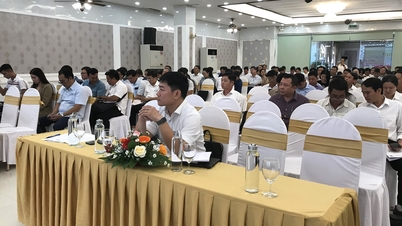


















































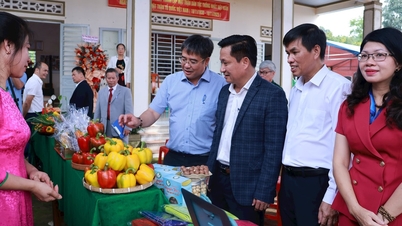

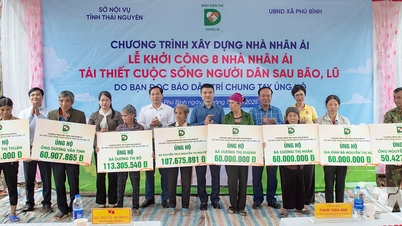

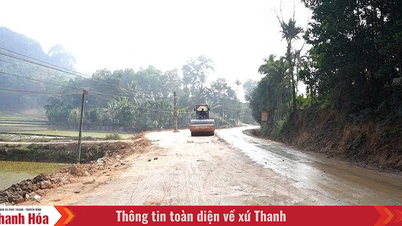



![Dong Nai OCOP transition: [Article 3] Linking tourism with OCOP product consumption](https://vphoto.vietnam.vn/thumb/402x226/vietnam/resource/IMAGE/2025/11/10/1762739199309_1324-2740-7_n-162543_981.jpeg)








Comment (0)